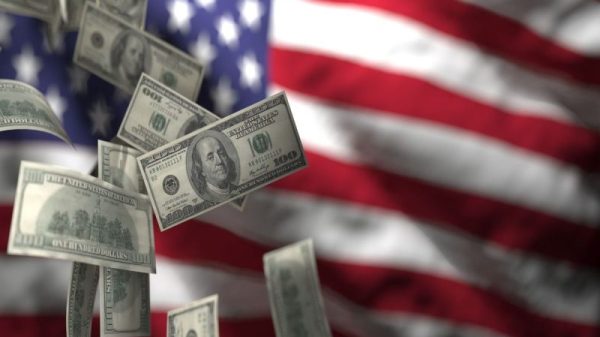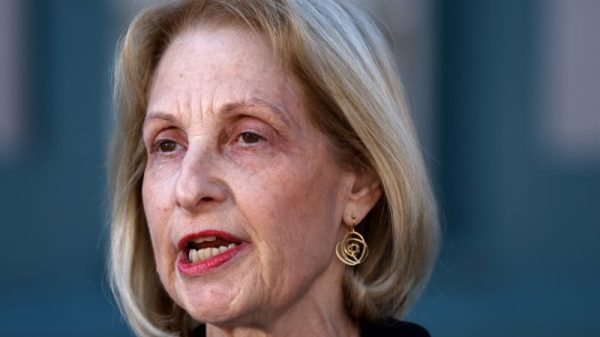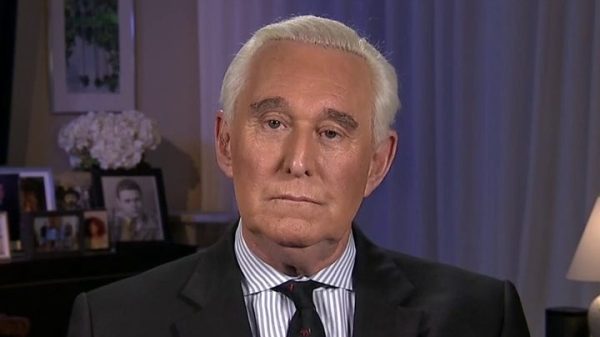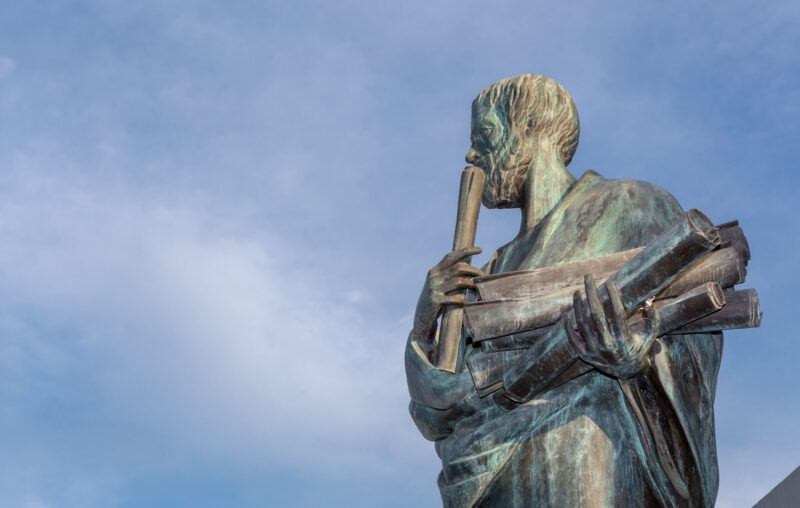Freedom is a complicated idea. Since we can talk about liberty in the positive and the negative, it’s also a contradictory idea. In our time, liberty has meant the ability or the power to participate in government as well as the freedom to be left alone from government. In another way, the words “liberty” and “freedom” have both normative and descriptive connotations. There’s a sense in which freedom is a condition—it’s just the way things are. In a larger sense, however, freedom is also a normative idea of the way that things ought to be. It’s perhaps for this reason, above all, that liberty has such an integral relationship to the liberal arts.
The purpose of a liberal education is to guide you along the path of recognizing what the good is—to illuminate how one ought to use the liberty you possess properly. Liberal education is about meditating on what it means to be a human being and also about how we ought to live in accordance with the understanding of what a human being is. In studying humanity in general, we learn to govern it—to use our liberty rightly by strengthening our capabilities and tempering our shortcomings. This kind of education, then, is so important because it’s necessary for a free society. We cannot be a free society unless the individuals that make it up are properly free. And individuals cannot be properly free if they don’t learn to govern themselves.
In one sense, you could describe liberty or freedom in terms of what it’s not. The simplest way of understanding liberty is you’re not a slave; you’re not held captive to something or someone. You’re free from being controlled by something else. But it also has the sense that to be a free man is to be more than simply not a slave—a free man should also possess certain freedom-related characteristics like magnanimity and generosity. There are certain things that a free man ought to be. Indeed, it is the abuse of freedom and the failure to meet this ideal that makes liberty a problematic theme in Western history.
In the Judeo-Christian tradition, in particular, one of the most common understandings of liberty was viewed in a religious sense; a lack of freedom entailed being enthralled by sin. The first governor of the Massachusetts Bay Colony, the Puritan John Winthrop, exclaimed that the Massachusetts Bay Colony had developed an incorrect understanding of freedom:
There’s a twofold liberty. Natural, I mean, as our nature is now corrupt, and civil or federal. The first is common to man with beasts and other creatures. By this as he stands in relation to man simply, he has liberty to do what he lists. It is a liberty to evil as well as to good. This liberty is incompatible and inconsistent with authority and cannot endure the least restraint of the most just authority. The exercise in maintaining of this liberty makes men grow more evil and in time to be worse than brute beasts. This is that great enemy of truth and peace that wild beasts, which all the ordinances of God are bent against to restrain and subdue it.
In short, liberty has to be properly ordered.
Winthrop continues:
The other kind of liberty, I call “civil” or ”federal.” It may also be turned moral in reference to the covenant between God and man and the temporal law and the political covenants and constitutions among ourselves. This liberty is the proper end and object of authority and cannot subsist without it. It is a liberty to do only that which is good, just and honest. This liberty you are to stand for with the hazard not only of your goods, but of your lives, if need be.
You could also say that freedom, in its descriptive sense, is just a fact of life; we’re stuck with freedom for good or ill. As Winthrop says, the bad kind of liberty is when humans engage in the kind of faux “liberty” that irrational animals have. The choice to act in accord with our nature or with the moral law is unique to human beings. No other animal has that. Only we have the power, the freedom, and the ability to choose whether we want to act the way that we ought to or not. Only human beings have the choice of whether we want to defy the nature that God gave to us.
Socrates believed that through liberal education, there was an objective moral reality that people were capable of discovering—and needed to discover. Unlike the sophists promising that certain “tricks” could enable one to attain whatever one wanted in life, Socrates advanced an education based on objective beliefs in moral reality that would guide one toward virtue.
Accordingly, Cardinal John Henry Newman, one of the great champions of liberal education in the 19th century, observed:
It’s by the pursuit of wisdom and virtue that we become wise and virtuous. It is learning to be something good per se, not learning something that will be useful for doing something else … The aim of a liberal education is to give young people principles of self-control, to form their youthful energy, to enable them to know what they’re talking about.
A thorough education in the liberal arts contains various courses of study, all of which reflect upon the nature of man and how he uses his freedom. A properly run English department does this through poetry and prose; a history department does it through the true stories of the past; a philosophy department does it through contemplating and debating the highest questions of existence and ethics.
This leads to another aspect of liberty: the tradition of civil liberty, or, how we ought to act in public life. As the great 20th-century philosopher Isaiah Berlin laid out, the positive tradition of liberty is our ability—indeed our duty—to participate in public life. As opposed to the “negative liberty” attitude of being left alone, civil liberty recognizes that we are, by nature, political animals.
In the Hillsdale College curriculum, we teach, following Aristotle and Plato, that the contemplative, philosophical life is the best life. But it must also be recognized that the political life is necessary for it. In the early discussion of Western heritage, this is one of the core tensions and one of the main points articulated by Cicero. The men who understand that the greatest good is contemplative still have an obligation, if they have talent and ability, to contribute to public life.
You’ll often hear it said that politics is downstream of culture—that politics is the result of deeper cultural, religious, and moral principles. That’s true, but only partially. Politics also affects culture. More than that, the relationship between the two is reciprocal, and we need to consider both aspects. This is what Hillsdale is all about. We are pursuing truth and defending liberty. Indeed, our ability to pursue the truth depends upon the defense of civil, religious, and political liberty.
The mission statement of Hillsdale College says that this Western tradition of freedom finds its “clearest expression in the American experiment of self-government under law. For nearly two-and-a-half centuries, the American idea has been that we want as much liberty as possible, but only as much government as is necessary.”
As Lincoln put it when the Civil War was just beginning, the secessionist anarchical threat to the Union essentially posed the question, “Must the government of necessity be too strong for the liberties of its own people, or too weak to maintain its own existence?” The Civil War presented a challenge of whether the government was strong enough to maintain itself, but not so strong that it destroyed the liberties that that regime was dedicated. The success of Lincoln and the Union preserved Constitutional liberty into the 20th century.
Unfortunately, the 20th century witnessed a transformation of the understanding of liberty espoused by America’s Founders and by Lincoln. You can see this in the way that the term “liberal” as a political adjective changed from the 19th to the 20th century. In the 19th century, somebody who was a liberal was understood as we would put it today as a “classical liberal”—somebody who understood that we want the maximum of liberty that is compatible with order. Whereas in the 20th century, liberalism came to mean just the opposite of that. It became the agenda of big government and Progressivism.
Historically, it was understood that if you give people liberty, it often produces unequal outcomes because people are very different, and their diversity of aptitudes and talents is going to lead to unequal results. Today, however, many insist on perfectly equal, level, or flat outcomes. Accordingly, those who wish for equal outcomes look to the federal government to become an entity large enough to mandate such uniformity.
Mandated equal outcomes inevitably impinge on our liberty. When a large government body has the say on enough factors of life to make citizens truly equitable, it prevents the exercise of civil liberty—of being able to engage in societal decisions. Moreover, it even impedes the “negative” understanding of freedom to be left alone as the people become slaves because their basic rights and needs are dictated by the government. This manner of governing discourages excellence because it suppresses those who succeed so that they don’t prosper any more than the weakest or laziest citizens. Clearly, this modern understanding of liberalism does not maintain liberty.
Continue reading at Law & Liberty.


























